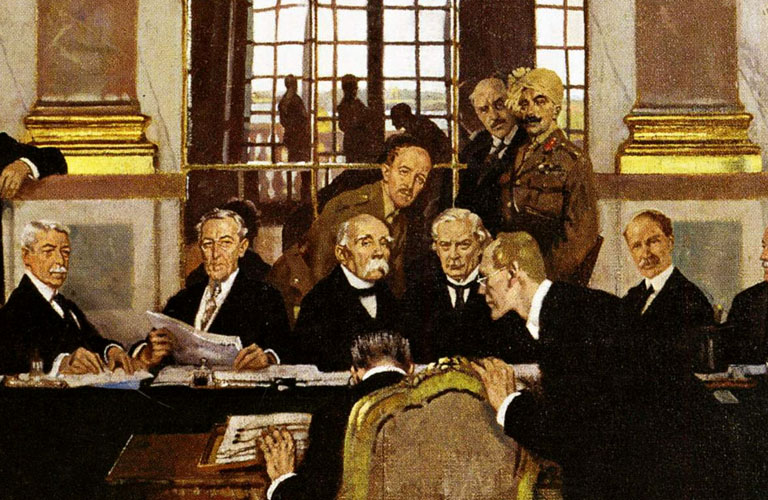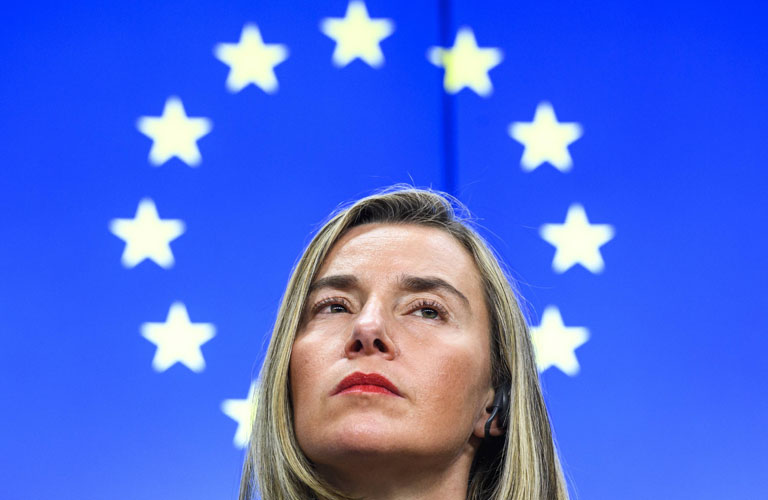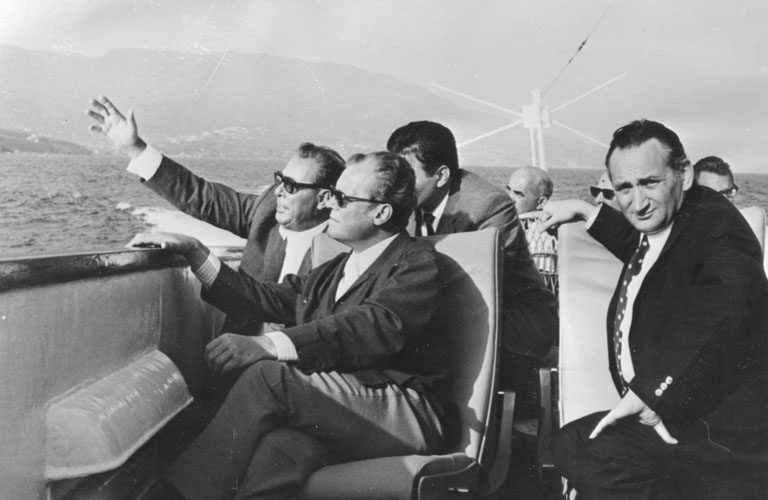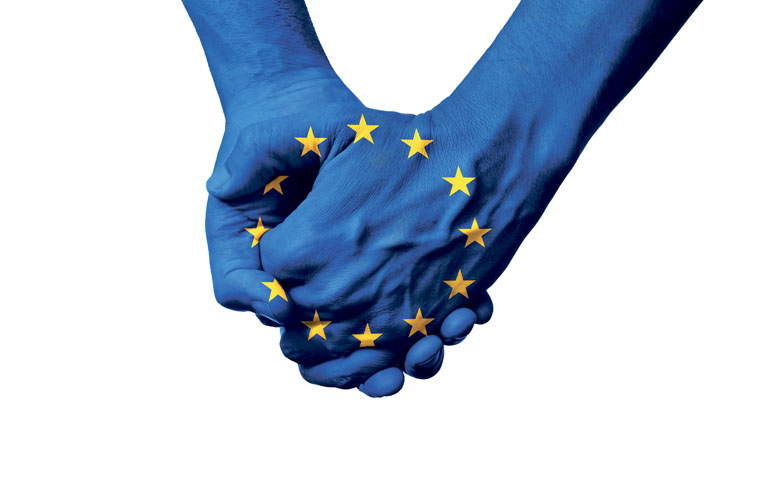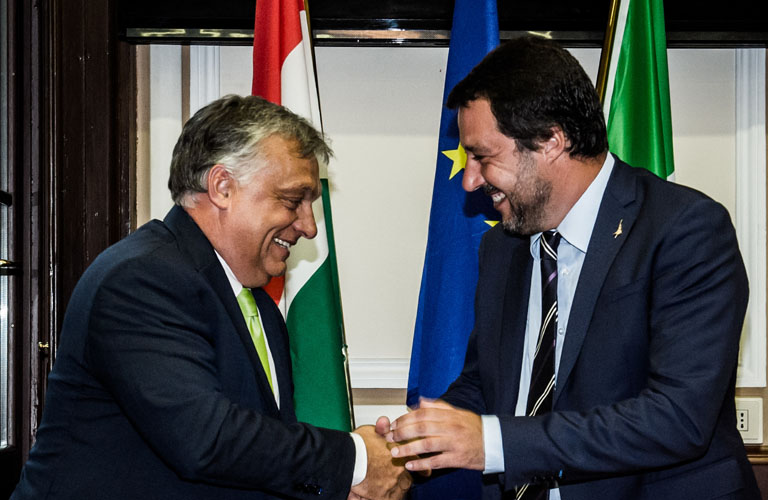When Federica Mogherini was named the European Union’s new foreign policy chief, one particular photo made the rounds in Brussels. It shows the Italian politician at the Kremlin, shaking the hand of Vladimir Putin. Their grasp is firm, their eyes locked. The photo was taken during her first trip to Moscow, in July 2014, when Mogherini was still foreign minister of Italy.
Whoever greets Putin so affably cannot possibly speak …

